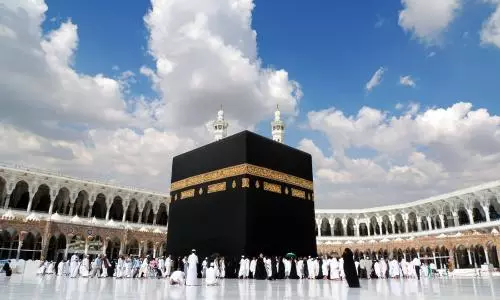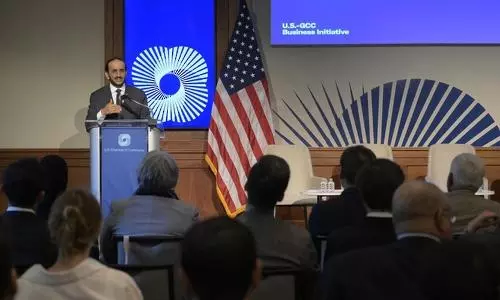
Fakes tales of political morality
text_fieldsElection Commissioner O P Rawat recently spoke at the Regional Consultation on Electoral and Political Reforms- Northern Region organized by the Association for Democratic Reforms (ADR) in New Delhi.
Through his remarks, he overtly opposed the new precedence that crept through the political morality. ‘Democracy thrives only when elections are free, fair and transparent. However, it appears to a cynical common man that we have been scripting a narrative that places maximum premium on winning at all costs to the total exclusion of ethical considerations. In this narrative, poaching of legislators is extolled as smart political management, strategic introduction of money for allurement, tough-minded use of state machinery for intimidation etc. are all commended as resourcefulness. The winner can commit no sin and a defector crossing over to the ruling camp stands cleansed of all guilt as also possible criminality. It’s this creeping ‘new normal’ of political morality that should be the target of exemplary action by all political parties, politicians, media, civil society organisations, constitutional authorities and all those having faith in democratic polity for a better election, a better tomorrow’, he said. The Election Commissioner’s remarks come in the backdrop of the BJP deciding to approach the court against the Election Commission’s move that invalidated the shameful political drama that occurred in the Gujarat Rajya Sabha polls using special powers. At the event, Rawat slammed the practice of paid news and also called for limiting the election expenditure of political parties alongside expressing his objections to the introduction of electoral bonds as well as towards the recommendations to amend the Representation of People Act.
It was the same day the apprehensions of the Election Commissioner over the decaying morality consuming the Indian politics surfaced, that reports of horse-trading maneuvered by the BJP in Tamil Nadu politics using the power base at the Centre also came to light. The tactics of money power that proved successful in Manipur, Goa, Assam, Maharashtra, Bihar and Uttar Pradesh, are set to course through Tamil Nadu. The answer for the question as to from where such huge amounts of money come from for misuse of power, will be obtained from the report released by the Association for Democratic Reforms after examining the donations received by the prominent parties during the last four years. The donation received by the four leading national parties as disclosed to the Election Commission during the financial year starting from 2012 to 2016, comes to around Rs 1066 crore. It’s the giant corporates that donated Rs 956.77 crore and 80 per cent (Rs 768. 25 crore) of their donations was received by the BJP that’s in power at the Centre. The fact that they received Rs 192 crore between 2004 and 2012 brings to light the amount of money that flows through the corridors of power and those who benefit from the seats of power acquired using money. Of the Rs 159.67 crore received without a PAN number or any other documents, it was the BJP that were the recipients of Rs 159. 59 crore alone. Although the party hasn’t given the financial estimates of the last two months to the Commission, it is indicated in the Association’s report. Only Amit Shah will know how much it amounts to. The financial growth of the party that rules at the Centre and its president (The increase in the income disclosed in the data submitted in connection with the Rajya Sabha polls was 300 times more, i.e. Rs 34.31 crore) within the last four years is shocking.
The Parliament had approved the Finance Bill 2017 on the last Wednesday of March this year. It was to curb the donations by corporate companies to the political parties. The data above and the unbridled flow of money for ensuring the cross-overs, confirm once again for whom and why the amendments were made in the bill. Before the amendment, the corporate entities could contribute only 7.5 per cent of average net profit as donations. Also they were required to disclose the names of the political parties. It could be seen that it was after the amendment that the rapidity of political crossovers increased in the country. At a time when shifting allegiance and ensuring power is widely recognized as political smartness, the remarks of O P Rawat are likely to get lost in the darkness of political rot.























